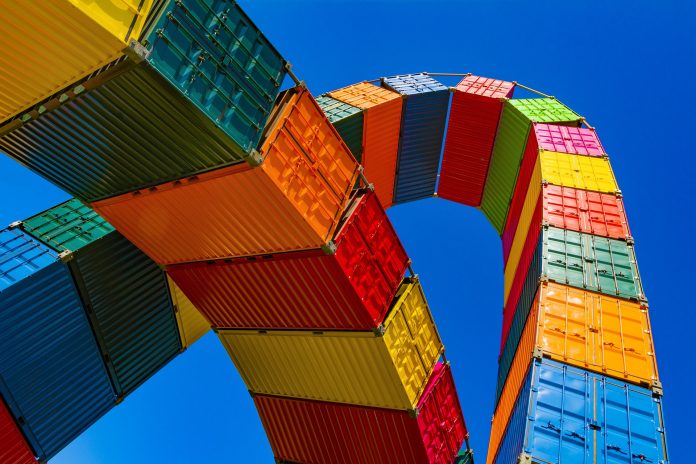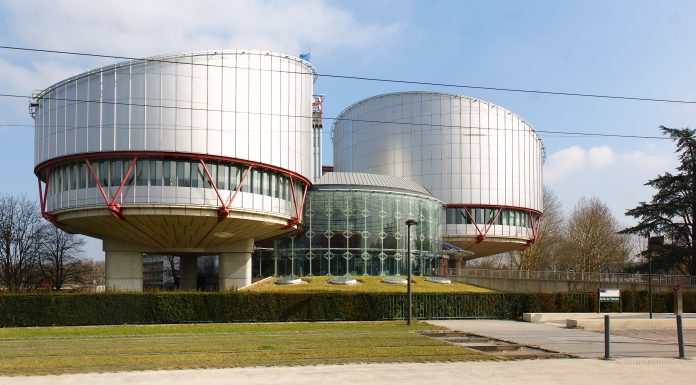This week, the European Commission sharply cut its eurozone economic growth forecast for 2025, blaming this on the global trade tensions sparked by US President Donald Trump’s sweeping tariffs. Its estimate is now for the eurozone to merely experience 0.9 percent in 2025, sharply down from the previously forecasted 1.3 percent, as a result of “a weakening global trade outlook and higher trade policy uncertainty”.
Apart from 25-percent levies on steel, aluminium and auto imports, on 2 April, Trump announced a 20-percent tariff on most EU goods. His “pause” means that the tariffs won’t kick in until July, but just like other countries, EU imports are now subject to a “baseline” 10 percent tariff.
Growth forecast for 2025 (%):
🇲🇹 4.1
🇩🇰 3.6
🇮🇪 3.4
🇵🇱 3.3
🇭🇷 3.2
🇨🇾 3.0
🇪🇸 2.6
🇬🇷 2.3
🇸🇮 2.0
🇱🇹 2.0
🇧🇬 2.0
🇨🇿 1.9
🇵🇹 1.8
🇱🇺 1.7
🇸🇰 1.5
🇷🇴 1.4
🇳🇱 1.3
🇪🇺 1.1
🇸🇪 1.1
🇪🇪 1.1
🇫🇮 1.0
🇭🇺 0.8
🇧🇪 0.8
🇮🇹 0.7
🇫🇷 0.6
🇱🇻 0.5
🇩🇪 0.0
🇦🇹 -0.3Spring #ECForecast → https://t.co/f5rhR2qk1s
— European Commission (@EU_Commission) May 19, 2025
While the United States has already struck deals to alleviate US tariffs with the UK – a first great Brexit success – and China, no such arrangement has been reached yet with the European Union.
Despite describing European Commission President Ursula von der Leyen as “fantastic”, Trump has also lashed out at the EU, stating: “They treated us very unfairly. (…) They sell us 13m cars. We sell them none. They sell us their agricultural products. We sell them virtually none. They don’t take our products. That gives us all the cards.”
He thereby even added that “the European Union is in many ways nastier than China, and we’ve just started with them. Oh, they’ll come down a lot. You watch.”
Whether that will turn out the case, remains to be seen. Trump has been forced to strongly water down his stance towards China, following market turmoil and higher US borrowing costs.* The EU most certainly does have a number of cards it can play with.
🇪🇺 Brussels is being left out in the cold as the US strikes agreements with China and Britain
Read more: https://t.co/1wJmWr4AOG pic.twitter.com/rYYY692w3D
— The Telegraph (@Telegraph) May 13, 2025
A letter from Trump
A positive sign in any case is the letter sent by the Trump administration whereby it communicates that that it is willing to negotiate. This follows the European Commission’s announcement of a list of possible concessions, including the relaxation of certain regulations and a proposal to jointly curb Chinese overproduction.
At the end of April, the European Commission also presented a list of possible import duties worth almost 100 billion euros. American goods that would be affected include aircraft, passenger cars, medical equipment, chemicals and plastics, as well as a whole range of agricultural products. Bourbon and other spirits are once again on the list, despite opposition from wine-producing countries such as France and Italy, which fear retaliatory measures.
One of the other options still under discussion is a tax offensive against US big tech, which amounts to instrumentalising the European Commission’s competition policy for trade war purposes, without saying so openly. France is pushing for this, but Germany is currently blocking it. Also legal proceedings at the World Trade Organisation are also on the table, despite the fact that the WTO has no way of forcing Trump to change course. For the time being, however, the EU is only threatening retaliatory measures in the area of goods and not services, such as Big Tech or Wall Street.
Interestingly, EU member states are now urging the European Commission to refrain from any retaliatory measures against Donald Trump’s tariffs until after the NATO summit in June. They consider an agreement with the American president on Europe’s medium-term security to be a priority.
Italian Prime Minister Giorgia Meloni is trying to do her bit. She managed to bring together U.S. vice president JD Vance and von der Leyen. There, Vance stated he was hopeful about “long-term trade advantages” between the European Union and the United States.
The stakes are high. According to the think tank Bruegel, a no-deal outcome between the U.S. and the EU could wipe 0.7 percentage points off US GDP, and 0.3 points off the EU’s economy. European businesses are nervous. Fredrik Persson, BusinessEurope’s president, has said: “We should preserve tariff-free arrangements that support our companies in key sectors such as aerospace, spirits, and medical devices.”
Giorgia Meloni just organized the first meeting of Trump’s 2nd term between the Trump administration and the EU.
The two main topics for future talks will be trade and Ukraine.
Meloni is acting as a very needed transatlantic bridge-builder in this moment
🇺🇸🇮🇹🇪🇺 pic.twitter.com/ajcLs5KL1f
— Visegrád 24 (@visegrad24) May 18, 2025
Non-tariff barriers
Given how quickly Trump came up with concessions to China, it is of the utmost importance that the European leadership plays this well. Previous comments made by European Commission figures, like von der Leyen’s threat to impose tariffs on US digital services, should make it clear to European governments not to trust this key negotiation to the EU. At the end of April, Bernard Arnault, Europe’s richest man and the CEO of luxury empire LVMH, stated: “European countries should try to manage these negotiations, and not leave them to bureaucrats.” He has threatend to nearshore his company’s operations to the U.S. in the event of a trade war, also blaming this on European regulations that hurt businesses more than they help them.
Robin Brooks of the Brookings Institute has pointed out how effective China has been in getting Trump to make a u-turn, explaining: “China’s ultimate retaliatory weapon has always been Yuan devaluation, not tariffs or export controls. China used devaluation very effectively after the April 2 reciprocal tariff rollout, setting the stage for the de-escalation we now see.” This basically shows that the EU has a chance to achieve a lot in the negotiations with Trump, so it should not waste this opportunity.
China's ultimate retaliatory weapon has always been Yuan devaluation, not tariffs or export controls. China used devaluation very effectively after the April 2 reciprocal tariff rollout, setting the stage for the de-escalation we now see. Today's substack:https://t.co/u5quUI1rmn pic.twitter.com/AwcHxDmKIN
— Robin Brooks (@robin_j_brooks) May 16, 2025
One of the big things the U.S. is demanding from the EU is not so much lower EU tariffs but scrapping non-tariff barriers, even though the US itself has many such barriers.
This is actually a great advantage for the EU, as many of its non-tariff barriers have been recently introduced, in the form of green regulations. Those are not only bothering trading partners, but also Europeans. Sacrificing them is therefore not a painful concession.
The new German Chancellor Friedrich Merz for example wants the EU to scrap its CSDDD ‘due diligence’ legislation, which obliges companies to check all kinds of sustainability rules throughout their supply chain. This legislation is a thorn in the side of many trading partners, apart from being yet another piece of bureaucracy hampering European competitiveness. For Merz, the postponement granted earlier does not go far enough.
USTR, the American trade agency, is vocally singling out specific European non-tariff barriers, for example the EU’s deforestation regulation (EUDR), which imposes new bureaucratic obligations on imports of products such as livestock, cocoa, palm oil and rubber. It argues that this will cost the US agricultural and industrial exports $8.6 billion a year. The controversial EU regulation already had to be postponed for one year, as a result of protests from both within the EU and from trading partners.
Deforestation of historic forests in Brazil: 😡😡😡😤😤😤
Deforestation of historic forests in Europe: 😍😍😍🤑🤑🤑
Green politics are a mess. pic.twitter.com/UpNb6qnfIi
— Connor Allen (@ConnorAllenEU) May 7, 2025
This type of legislation is a good example of how the EU tries to impose regulatory choices on its trading partners, thereby undermining good trade relations. First, it were the Southeast Asian palm oil exporters Malaysia and Indonesia that complained about this. These countries consider it particularly unfair that, despite the fact that NGOs have praised them for achieving a significant reduction in deforestation, the EU continues to refuse to recognise their standards as equivalent. This is despite the fact that the most recent version of the Malaysian anti-deforestation standard MSPO is even stricter than the European one. Notably, the European Commission just decided to qualify all 27 EU member states as presenting a “low risk” for deforestation, which means that they are not subject to the heavy bureaucracy the ones qualified as “high risk” or “standard risk” will suffer. Malaysia was qualified as “standard risk”, despite the fact that the country has pointed out that “the European Commission knows that we have a far better record on this than some European states.” Furthermore problematic in this regard is that the European Commission is making its assessment based on “total forest cover” rather than “primary forest” data, which means that countries that allow chopping forests that have taken ages or even millenia to develop and replace them with monocultures are classified as “low risk”.
With Trump demanding for these kinds of trade-distorting non-tariff barriers to be removed, some in the EU may perhaps consider scrapping the whole thing altogether, as favoring the U.S. in this regard may rightly upset other trading partners.
In general, left-wing European politicians are not particularly enthusiastic about abolishing this kind of petty protectionist bureaucracy, and have even suggested increasing joint EU-US protectionism towards China as a response. Their influence has however been drastically reduced by EU voters in last year’s European Parliament elections, as we can see from the increased cooperation between centre-right and right-wing populist forces there. The European Commission is however open to discussion on the abolition of non-tariff barriers. Also, with the Commission recently starting or relaunching trade deals with the likes of India, the Philippines, Malaysia, Thailand and the United Arab Emirates, it seems that the “Trump Derangement Syndrome” is actually producing positive outcomes this time around. Not only are leftists warming to the cause of free trade, but the European Commission also seems to be focusing more its core business – opening up trade. Optimism is a moral duty.
The EU is expected to share a revised trade proposal with the US, as it aims to inject momentum in talks with Donald Trump’s administration https://t.co/evnYD4pElQ
— Daniel Lacalle (@dlacalle_IA) May 21, 2025













